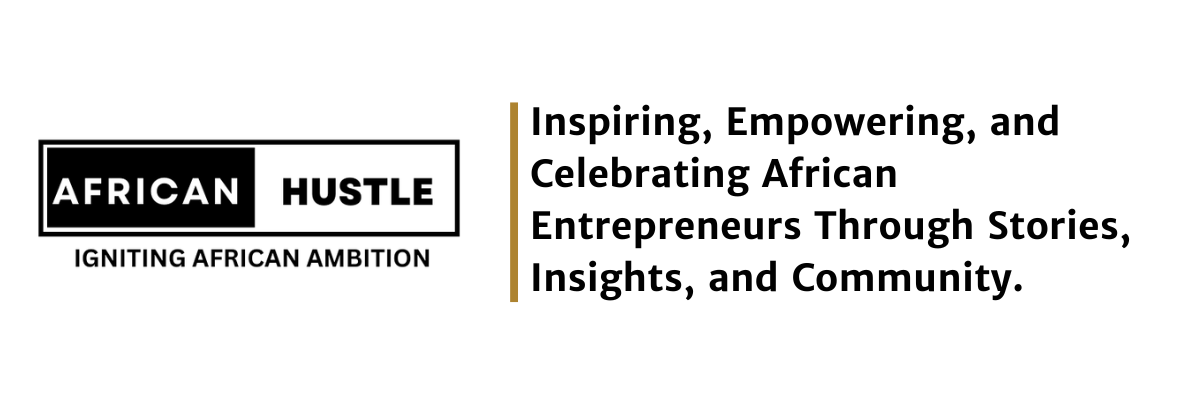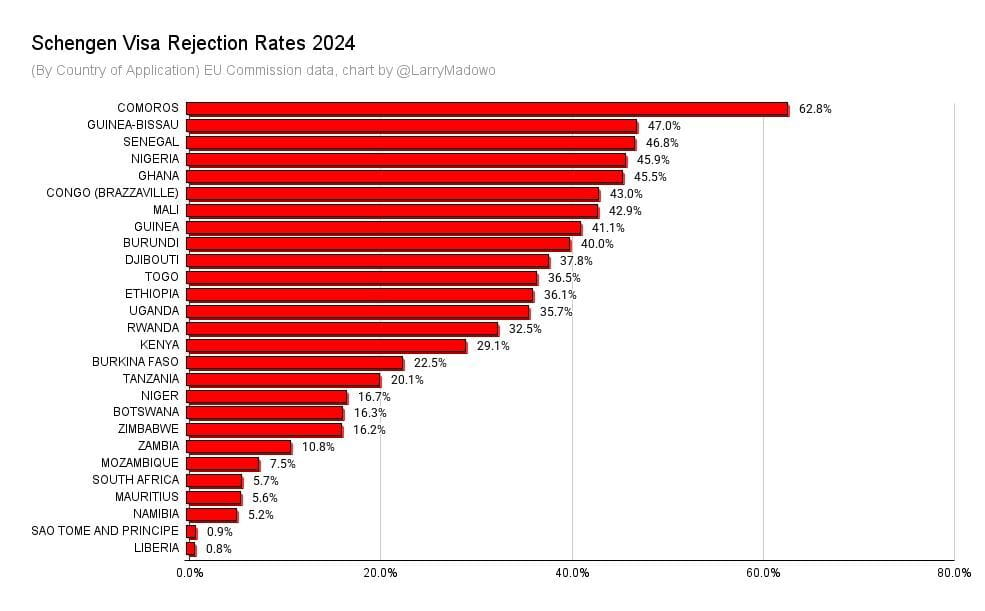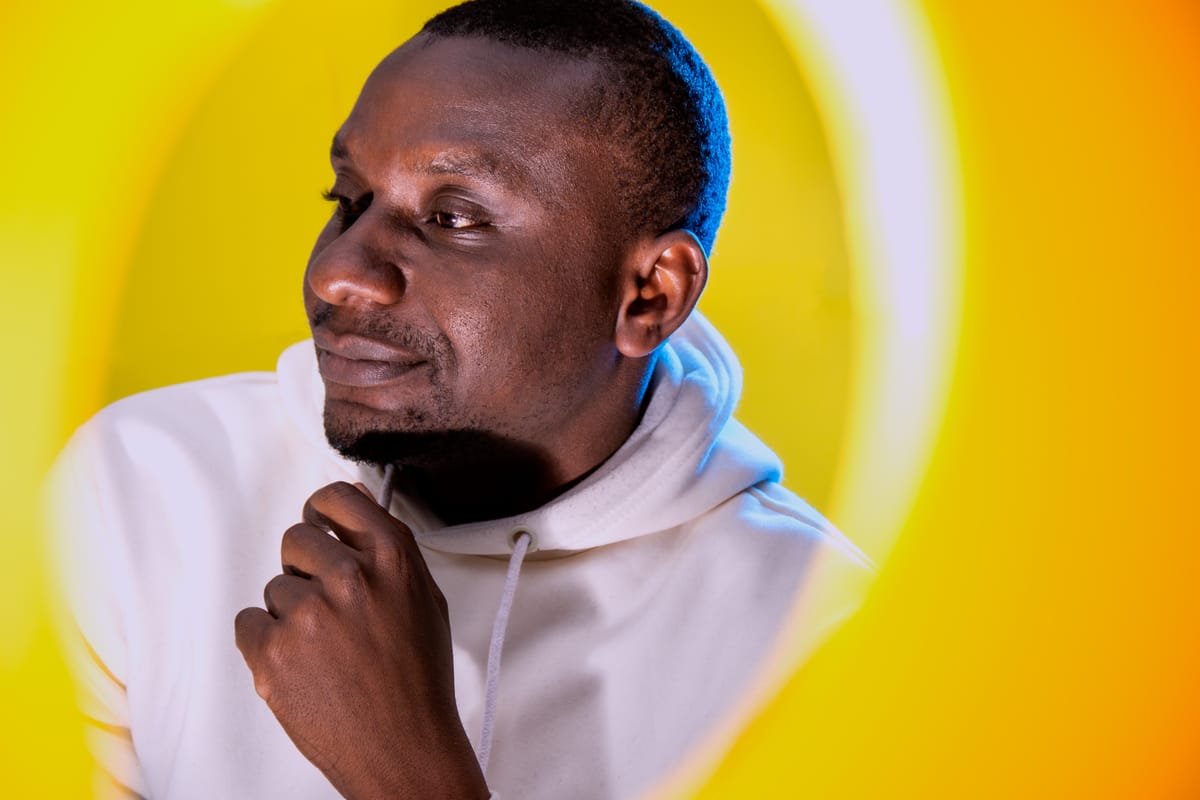
Welcome to African Hustle! Your bi-weekly dose of inspiration and smart insights into African entrepreneurship — featuring real stories about tech, culture, startups, founders, and innovations shaping the future of the continent.

I am gripped by some measure of melancholy. Very recently, we experienced loadshedding, and now, as I write, the taps have run dry. We are experiencing a new phenomenon called water throttling, which is actually watershedding.
Both water shedding and load shedding can be directly attributed to poor infrastructure planning and management. But that is a story for another day.
To those not familiar, loadshedding is the practice of rotating power outages. It is a result of the energy supply being unable to meet the demand.
Similarly, water shedding, which involves restricting water supply in certain areas, stems from a mismatch between water demand and supply capacity.
So, either we go without electricity or water. And this is in one of the richest cities in Africa! It’s not an everyday occurrence, but it’s scary nonetheless.
A staggering 640 million Africans have no access to energy, corresponding to an electricity access rate for African countries at just over 40%, the lowest in the world.
We need electricity to reduce the cost of doing business, unlock new economic potential and create jobs.
Africa is tired of being in the dark.
The situation is even more dire when we look at the water availability. Back in school, when we were cramming that 71% of the Earth's surface is covered by water, we might have omitted to note that the oceans hold about 96.5% of that water.
More than half of the population in Sub-Saharan Africa lacks access to safe drinking water, and up to 300 million people across the continent live in a water-stressed environment.
We have water poverty.
The sadder part is that the water challenges are not only due to infrastructural constraints, poor planning and maladministration. Climate change has a part to play. Africa is facing more severe climate change than most other parts of the world. And this is despite bearing the least responsibility for the problem.
We have nearly one-fifth of the world’s population today, but account for less than 3% of the world’s energy-related CO2 emissions. Imagine this! We have the lowest emissions per capita of any region. Africa is disproportionately bearing the brunt of climate change, including water stress, reduced food production, increased frequency of extreme weather events and lower economic growth.
Waterpreneurship
I am drawn to the steps we can take as hustlers to address the water and electricity woes.
Firstly, let’s take a look at water entrepreneurship. Waterpreneurship is not a completely new phenomenon.
Hustlers have always been on the lookout for avenues to create and grow businesses or ventures that address challenges related to water access, quality, management, and sustainability.
And if we are to be water entrepreneurs, what would that hustle look like?
Key Aspects of Water Entrepreneurship
Supplying clean and safe drinking water, e.g. bottled water and filtration systems
Developing new technologies for water purification, conservation, and management
Repairing and maintaining water infrastructure, like pumps and pipes
Creating business models that improve water access and affordability
Promoting sustainable water use and ecological transformation
Business Models
Direct sales of water or water-related products, such as alkaline water
Service-based models (installation, maintenance, and repair of water systems)
Social enterprises that combine profit with community impact
Startups leveraging technology and innovation to solve water scarcity or quality issues
Energypreneurship
Much like the water sector, there is an opportunity for entrepreneurs in the electricity sector. Areas of opportunity are vast across renewable energy generation, smart grid technology, energy storage, and improving access to affordable electricity, especially in underserved or rural communities
Some of the possible business models for electricity or energy entrepreneurship are as follows:
Business Model | Description |
|---|---|
Energy-as-a-Service | Customers pay a subscription or usage fee for reliable power without owning the infrastructure. The entrepreneur owns, operates, and maintains the system. |
Pay-As-You-Go | Customers pay for electricity as they use it, often via mobile payments. This model lowers barriers for low-income users and is popular in off-grid solar markets. |
Community-Based Renewable Energy | Energy infrastructure is collectively owned or managed by a community, often with entrepreneurs facilitating setup and operations. |
Build-to-Own Standalone Facilities | Entrepreneurs build and own energy facilities (solar farms, microgrids) and sell power to institutions or communities. |
Peer-to-Peer Energy Trading | Platforms allow individuals or businesses to buy and sell excess electricity directly, often using blockchain technology. |
Storage-as-a-Service | Entrepreneurs provide energy storage solutions (like batteries) as a service, enabling customers to store and use power as needed. |
Traditional Utility-Scale Generation | Large-scale generation and sale of electricity, often through power purchase agreements with governments or corporations. |
Hybrid Product-Service Models | Combining sales of physical products (solar panels, batteries) with ongoing maintenance, monitoring, or financing services. |
It is not just water and electricity affecting the African hustler, or hinting at an opportunity for them.

STATE OF THE HUSTLE 2025

Africa is the world’s most entrepreneurial continent.
Over 20% of our working-age population is engaged in launching or running new businesses. More than 75% of our youth, the largest youth population on Earth, aspire to be entrepreneurs within the next five years. The hustle is a full-time movement.
SMEs generate 80% of all jobs in Africa. Yet, nearly 1 in 3 entrepreneurs still say that access to capital remains their greatest obstacle.
African women are not just contributing to the economy, they are building it.
Africa boasts the highest female entrepreneurship rate in the world at 25.9%. This means that one in four women starts or manages a business.
Unemployment among African women remains high at 29%, but millions are refusing to sit idly. Yet, despite leading in participation, they continue to be underserved in funding, recognition, and support.
Factors affecting entrepreneurship
Across multiple research findings, seven primary factors are driving entrepreneurship in Africa:
Rapid urbanisation is creating new consumer markets and talent hubs, ideal for entrepreneurial activity.
Africa’s rapidly growing and youthful population provides a large, dynamic workforce and a burgeoning consumer base.
Increased digital connectivity and the proliferation of mobile technology have enabled new business models, especially in sectors like fintech, agri-tech, health tech, and e-mobility
The rise of incubators, VCs, and grant programs is helping, but funding gaps remain, especially for women and early-stage startups.
Skill-building programs, vocational training, and entrepreneurial education have created a wave of self-starters. Mentorship and access to networks are turning ideas into viable businesses.
Pro-business reforms and regional trade agreements like AfCFTA are opening doors. Improved ease of doing business and digital ID systems have enhanced access to services and markets.
Entrepreneurship is often necessity-driven, with individuals starting businesses to address unemployment, economic hardship, or gaps in local services.
Africans are bringing capital, experience, and networks back home. Global partnerships are providing pathways to new markets and mentoring for local startups.
The Capital Winter
From $5.4 billion raised by a total of 633 startups in 2022, African startups’ funding fell to:
US$4.5 billion raised across 603 deals in 2023
$3.6 billion in 2024, across 487 venture deals
39 African startups raised $343m in April, as 2025 funding hits $803 million
African investors made up 31% of all active funders, the highest ever recorded.
We will win by having African capital backing African ambition.
Unicorns, Breakouts, and Billion-Dollar Dreams
Moniepoint (Nigeria) hit unicorn status in October 2024 after a $110 million Series C.
Tyme Bank (South Africa) followed with a $250 million Series D, valued at $1.5 billion.
The total number of African unicorns now stands at nine.
MNT-Halan (Egypt) and Moove (Nigeria) also raised over $100 million, proving that African scale-ups can attract global capital, even in lean times.
These aren't just funding wins. They're validation of African startups.
Venture, Debt, and the Rise of New Instruments In 2024
In 2024:
8 new funds closed, securing $736 million.
Debt deals increased, with the median size hitting $7.5 million, triple that of VC.
77% of angels invested under $25k per deal.
SAFEs (Simple Agreements for Future Equity) are now the most popular funding instrument. These tools are making capital more accessible, flexible, and founder-friendly.
The African Macro Outlook
According to the IMF, 11 African countries are in the top 20 fastest-growing economies globally.
Rank | Country | GDP Growth (%) |
|---|---|---|
1 | South Sudan | 27.2% |
2 | Guyana | 14.4% |
3 | Libya | 13.7% |
4 | Senegal | 9.3% |
5 | Palau | 8.5% |
6 | Sudan | 8.3% |
7 | Uganda | 7.5% |
8 | Niger | 7.3% |
9 | Macao SAR | 7.3% |
10 | Bhutan | 7.2% |
11 | Mongolia | 7.0% |
12 | Zambia | 6.6% |
13 | Benin | 6.5% |
14 | Ethiopia | 6.5% |
15 | Rwanda | 6.5% |
16 | India | 6.5% |
17 | Côte d’Ivoire | 6.4% |
18 | Philippines | 6.1% |
19 | Vietnam | 6.1% |
20 | Djibouti | 6.0% |
In 2025, Africa's GDP is forecast to grow by 4.1% according to the African Development Bank. This represents a slight increase from the estimated 3.4% growth in 2024.
In comparison, the global growth is projected at 3.3% both in 2025 and 2026, below the historical (2000–19) average of 3.7%.
Despite wars, inflation, and energy shocks, 40 African countries are set to grow faster than they did last year..
Speed and Digital Firepower
Stage | Time |
|---|---|
Seed to Series A | 14 months |
Series A to B | 19 months |
Series B to C | 25 months |
The startup pipeline is accelerating, and the next generation of founders is building faster, leaner, and louder than ever.
And with digital penetration set to hit 67% by 2026, and e-commerce revenues expected to cross $60 billion by 2030, we are just getting started.
What We Must Do Now
If 2024 was a reset, 2025 must be a relaunch.
We must:
Create founder-friendly regulations.
Build infrastructure for funding and exits.
Support local manufacturing, agri-processing, and tech IP.
Reward job creators, not just job seekers.
Back women and youth with capital, not just campaigns.
Push diaspora engagement from nostalgia to investment.
Make pan-African trade real, not just a PowerPoint promise.
Youth are looking for an escape.

It’s no secret that there is capital flight from Africa. That includes human capital.
Nigerians applied for 111,201 Schengen visas last year at €90 each. 46% of them were denied, so they lost over $5m in non-refundable visa fees.
Morocco is the largest African applicant country, with over 410,000 visa rejections in 2023, costing applicants about €10.9 million in lost fees. In 2023, SchengenVisainfo reported that 704,000 visa applications from Africans were rejected, totalling approximately $60.5 million lost in fees paid to the European Union without reimbursement.
66,329 Kenyans applied, but 29% were rejected; a loss of nearly $2m. Less than 3,000 people in Comoros applied, but only 37% were approved.
We need to succeed desperately and urgently, to show the African youth that it is possible in Africa.
The African hustle is a permanent economic force.
Hustlers may not lead the headlines. But we are shaping the future.
This is the State of the Hustle.
Let this year be the year we stop begging to be seen and start building so boldly that the world can no longer look away.
The hustle continues. The future is African. And we are just getting started.
Let’s hustle forward.
Enjoyed this post? Share it with someone who might find it helpful and encourage them to subscribe!
If we missed something, we’d love to hear from you — hit reply and let us know what insights you want us to dive into next.
And if this email was forwarded to you, you can sign up here!


